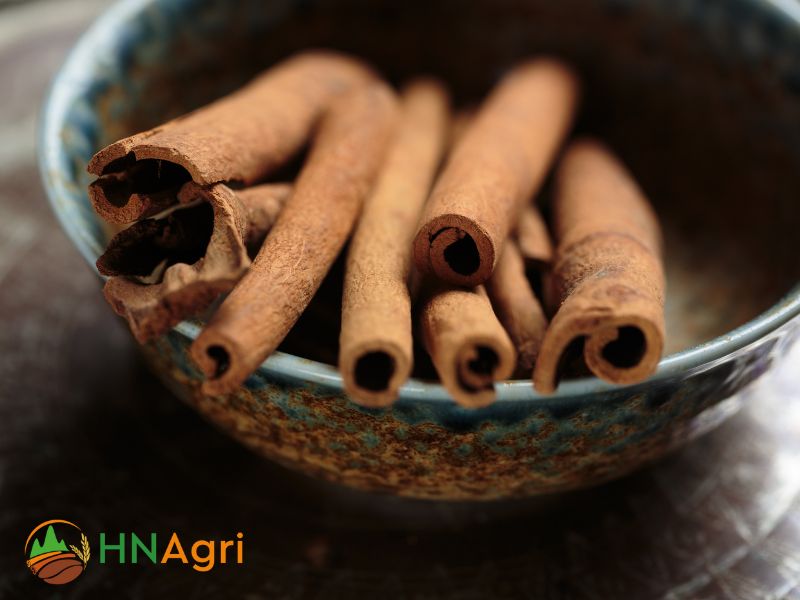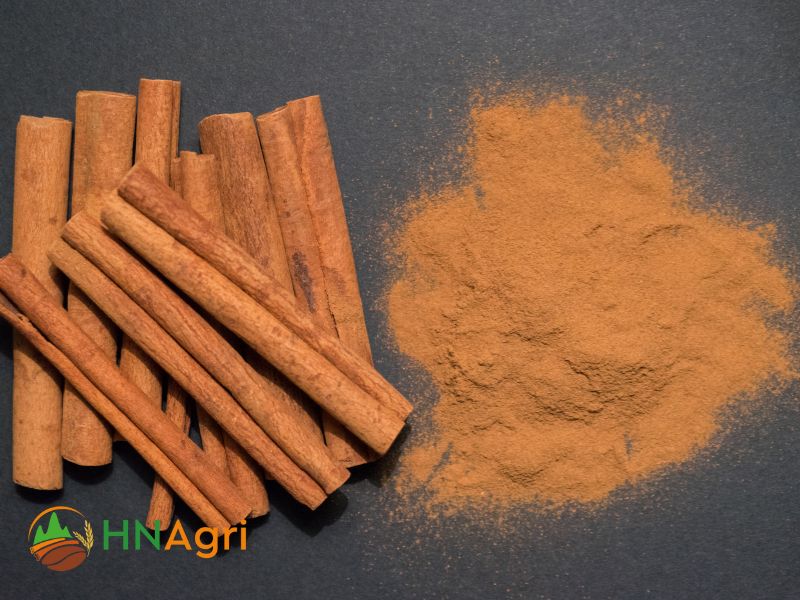
Cassia Cinnamon: Spice Up Your Inventory with Aromatic Delight
Explore the enticing world of Cassia Cinnamon in our comprehensive guide tailored for wholesalers. Elevate your inventory with this aromatic delight as we uncover sourcing strategies, benefits, and market trends. Discover how Cassia Cinnamon can add flavor and profitability to your wholesale offerings.
Briefly introduce the significance of cassia cinnamon in the culinary world
Embarking on a journey of flavors, it’s imperative to begin by acknowledging the profound significance that cassia cinnamon holds within the culinary realm.
Detail the aromatic and flavorful qualities of cassia cinnamon
Cassia Cinnamon, renowned for its captivating aroma, is a culinary treasure that immediately engages the senses. The distinct, warm fragrance of Cassia Cinnamon evokes a sense of comfort and nostalgia, making it a staple in kitchens around the world. Its aromatic qualities can transform dishes and infuse them with an enticing depth of flavor.
- Flavorful Symphony: Cassia Cinnamon offers a harmonious balance of sweetness and spiciness, infusing dishes with a unique complexity. Its flavor profile features a lush, sweet undertone complemented by a subtle, warming kick, enriching both sweet and savory creations.
- Beyond Culinary Applications: From enhancing hot chocolates, teas, and cocktails with its warming aroma, to its use in candles, potpourri, and essential oils, creating a cozy atmosphere through aromatherapy. Moreover, Cassia Cinnamon’s captivating scent finds its way into skincare products, providing a delightful sensory experience that extends beyond culinary delights.
In essence, Cassia Cinnamon’s aromatic and flavorful qualities not only enrich culinary endeavors but also evoke a sense of comfort and familiarity, making it a prized addition to the offerings of wholesalers seeking to add a touch of aromatic delight to their inventory.

Detail the aromatic and flavorful qualities of cassia cinnamon
Potential of high-quality cassia cinnamon in the market
Here are some factors contributing to the potential of high-quality cassia cinnamon in the market:
- Growing Demand for Natural Ingredients: Consumers are increasingly seeking natural and organic products, including spices. High-quality cassia cinnamon, known for its rich flavor and aroma, fits into this demand for unprocessed and natural ingredients.
- Flavoring and Culinary Uses: Cassia cinnamon is popularly used in culinary applications, such as baking, cooking, and beverages. Its strong and warm flavor makes it a favorite among chefs, home cooks, and food manufacturers.
- Health Benefits: Cassia cinnamon has been associated with several potential health benefits, including blood sugar regulation, anti-inflammatory properties, and antioxidant effects. These health claims have led to increased interest in the spice for both culinary and dietary supplement purposes.
- Global Cuisine Trends: As global cuisine becomes more diverse, the demand for spices like cassia cinnamon, which is used in a variety of cultural dishes, continues to rise. It’s a staple in cuisines from Asia to the Middle East.
- Food and Beverage Industry: The food and beverage industry is a major consumer of high-quality cassia cinnamon. It’s used in a wide range of products, including baked goods, desserts, beverages, sauces, and seasonings.
- Natural Remedies and Traditional Medicine: In traditional medicine systems like Ayurveda, cassia cinnamon has been used for its potential health benefits. This has contributed to its popularity in natural remedies and herbal supplements.
- Increasing Awareness: As consumers become more aware of different varieties of cinnamon, the demand for high-quality cassia cinnamon may rise. People are beginning to differentiate between cassia cinnamon and Ceylon cinnamon (Cinnamomum verum) due to variations in flavor and potential health effects.
- Export Opportunities: Countries that produce high-quality cassia cinnamon have the opportunity to tap into international markets and benefit from growing demand.
- Flavor and Fragrance Industry: Apart from culinary and health-related uses, cassia cinnamon is also used in the fragrance industry to create warm and spicy scents in perfumes and cosmetics.
However, it’s important to note that there can be challenges as well, such as concerns about adulteration, sustainability, and sourcing practices. Additionally, the market is subject to fluctuations in supply, quality, and consumer preferences.
Different types of cassia cinnamon in the market
Certainly, there are various forms and products derived from cassia cinnamon (Cinnamomum cassia) available in the market. Here are the different types:
- Cassia Cinnamon Sticks: Cassia cinnamon sticks, also known as quills, are one of the most common forms of cinnamon available. These are long, rolled pieces of cassia bark that have a strong and spicy flavor. They are used in cooking, baking, and beverages to infuse dishes with the characteristic cassia cinnamon taste. Cassia cinnamon sticks are often used in mulled wines, chai teas, and stews.
- Cassia Broken Cinnamon: This refers to pieces of cassia cinnamon bark that are broken or fractured during processing. These broken pieces are still used in cooking and baking, often ground into powder for convenience. They can provide the same flavor and aroma as whole sticks but are sometimes more affordable due to their irregular shape.
- Cassia Cinnamon Split: Cassia cinnamon split refers to the bark that has been split or cracked into smaller sections. This can happen naturally during processing or may be intentionally done to facilitate drying and grinding. Split cassia cinnamon is often used in recipes where a more intense cinnamon flavor is desired.
- Cassia Cinnamon Powder: Cassia cinnamon powder is made by grinding the dried bark of the cassia tree into a fine powder. This form is convenient for cooking, baking, and adding to beverages, as it disperses more easily than whole sticks. It’s a common ingredient in spice blends, desserts, and hot beverages.
- Cassia Cinnamon Oil: High-quality cassia cinnamon essential oil is extracted from the bark of the cassia tree. It’s a highly concentrated form of the spice and is used primarily for flavoring and fragrance purposes. Cassia cinnamon oil is used in the food and beverage industry to add a potent cinnamon flavor to various products. It’s also used in the fragrance industry to create warm and spicy scents.
Each of these forms has its own uses and applications in the culinary, food processing, and fragrance industries. When considering the use of any of these forms, it’s important to keep in mind the potency of cassia cinnamon’s flavor, as well as any potential health considerations, especially in the case of concentrated forms like cassia cinnamon oil.

Diffferent types of cassia cinnamon in the market
How to find reliable cinnamon company in the world
Finding a reliable cinnamon company involves thorough research, assessment, and verification of various factors. Here’s a step-by-step guide to help you find a trustworthy cinnamon supplier:
- Research and Identify reliable cinnamon companies: Start by searching online for cinnamon suppliers. Look for companies with a strong online presence, well-designed websites, and detailed product information. You can also ask for recommendations from industry professionals, colleagues, or trade associations.
- Check Company Background: Look into the company’s history, years of operation, and reputation. Check if they have any certifications related to quality, sustainability, or fair trade practices.
- Quality and Testing: Inquire about the company’s quality control practices. Reliable suppliers should provide information about how they source, process, and test their cinnamon products. Ask if they conduct third-party lab tests for quality and authenticity.
- Certifications and Compliance: Verify if the company has relevant certifications, such as organic, ISO, or other industry-specific certifications. These certifications can indicate a commitment to quality and ethical practices.
- Sourcing Practices: Inquire about the company’s sourcing practices. Reliable suppliers should be transparent about where they obtain their cinnamon, whether it’s from specific regions or farms.
- Transparency and Communication: Reach out to the company and assess their responsiveness and willingness to provide information. Transparent communication about their products, processes, and pricing is a good sign of reliability.
- Price Comparison: Obtain quotes from multiple companies and compare prices. Keep in mind that significantly lower prices may raise concerns about product quality or authenticity.
- Shipping and Packaging: Ask about their shipping methods, packaging practices, and lead times. Make sure they can meet your requirements and ensure the product’s quality during transit.
- Terms and Conditions: Review the company’s terms and conditions, payment methods, return policies, and any guarantees they offer.
- Request Samples: Request samples of their cinnamon products to evaluate their quality, aroma, and flavor before making a larger purchase.
Remember that due diligence is crucial when choosing a reliable cinnamon supplier. Take your time to gather information, ask questions, and make an informed decision based on your specific needs and preferences.



